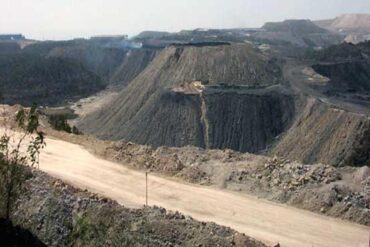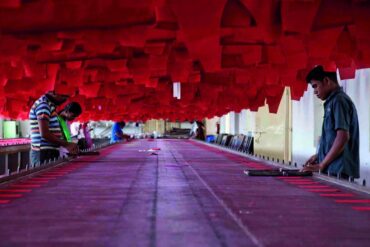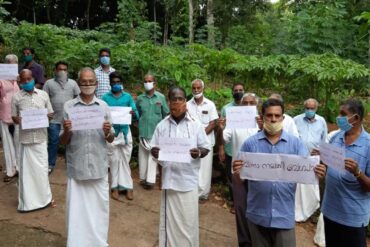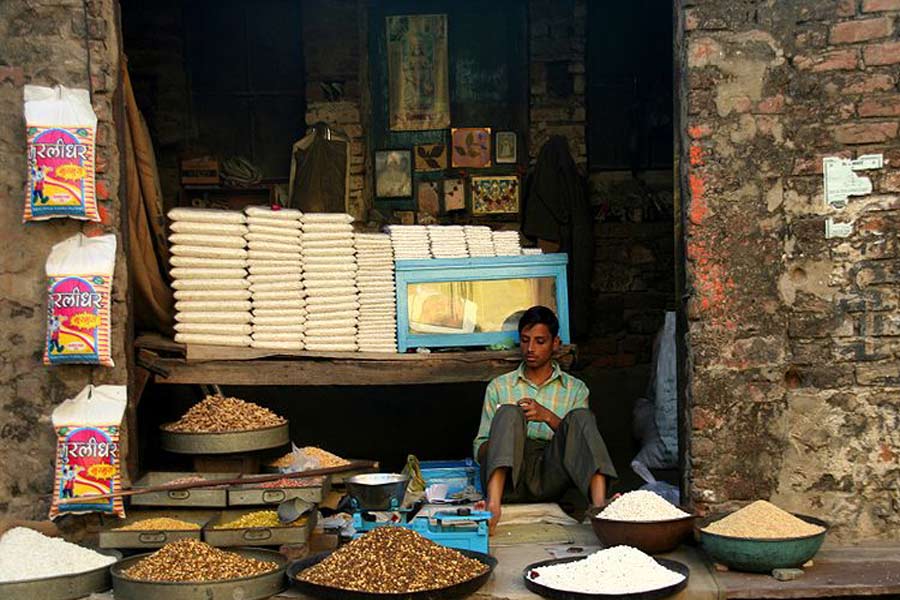Now that the Hindus have secured what they wanted, Ayodhya can no longer subsume all other issues of human survival in the Hindi heartland, where a Ram Temple upon Babri Masjid has always had its maximum appeal. Ayodhya has almost played out politically and as such, more mundane issues of day to day life are expected to re-engage the cow belt attention.
It is true that Indians had perfected the art of achieving absolute happiness through spirituality, but this faculty was never universal and only the most enlightened were privy to its secret. For the rest of Indians, spirituality is only a means to achieve greater material progress. So, the Ram temple cannot keep them obsessed for much longer. This puts the attention back on the economic conditions of the nation and the people, which unfortunately have not received Ram’s blessings despite all the sacrifices that have gone into the making of his temple.
No one has elucidated this helplessness more vividly than former Prime Minister Manmohan Singh in his latest critique of the Indian economy and the Modi government. Manmohan Singh’s only blemish perhaps was his tenure as prime minister, which didn’t match up to his stature as an economist. But in everything else, of course, with the exception of politics, where he continues to be as alien as he ever was, his performance has been unimpeachable.
Remember his description of monetisation as a “monumental blunder”. No one has bettered that description so far and the nation is continuing to pay for the mistake, which is still showing no signs of a reprieve.
Singh has broken his characteristic moun once again to diagnose the problems of the economy, which he has identified as not just the result of poor economic policies but also lack of mutual trust. Distrust among citizens in the society’s institutions and lack of confidence in the government are key reasons behind the prolonged slowdown, the former prime minister wrote in an opinion piece in The Hindu.
Unemployment at 45-year high, consumer spending at its lowest in four decades, losses suffered by most economic sectors due to sharp fall in demand are all manifestations of a deeper malaise in the economy, he pointed out. Manmohan Singh averred how a nation’s economy is also a function and reflection of the state of its society and said that the society’s social fabric of trust and confidence is “torn and ruptured”. There is virtually a “palpable climate of fear” in the society.
“This toxic combination of deep distrust, pervasive fear and a sense of hopelessness in our society is stifling economic activity, and hence, economic growth,” he wrote.
Mala fide unless proven otherwise
He came up with another brilliant one-liner on the Modi government’s policy framework that the new order is “mala fide unless proven otherwise”. The government is suspicious of every industrialist, banker, policymaker, regulator of committing fraud and this has had led to a complete breakdown of trust. “This has halted economic development, with bankers unable to lend, industrialists unable to invest and policymakers unable to act,” Singh wrote.
Manmohan Singh called for twin-policy action of boosting demand through fiscal policy and reviving private investment through social policy and explained that the economy currently lacks the trust factor, which has eroded confidence among economic participants in society.
“I urge the Prime Minister to set aside his deep-rooted suspicion of industrialists and entrepreneurs and nurse us back to a confident and mutually trustworthy society that can revive the animal spirits and help our economy soar,” the former prime minister said.
A reflection of Singh’s diagnosis can perhaps be found in the results of the recent assembly elections. There was a clear message in the mandates in states under the BJP rule that the people are more concerned about their livelihood than national security and other issues when it comes to state elections.
No matter what the government and the finance minister might say, the economic slowdown is for real and the people are suffering the consequences. Fancy stimulus packages have had little effect on the ground situation, where people are losing jobs and finding their disposable incomes disappear into thin air. They are more obsessed with their economic hardships than national security, which seem to be the overarching priority for the government.
The government and the finance minister continue to be in a state of denial. The first step to solve a problem is the recognition that the problem exists but the government refuses to accept that the economy is in deep trouble and instead is trying to create a make-believe world to convince people that everything is hunky dory.
There is a need to improve the spending power of the people, for which existing jobs have to be protected and new ones created. The government hopes its announcements would help increase production; but increased production without a corresponding increase in demand to absorb the existing production will only lead to further distress.
By arrangement with IPA







